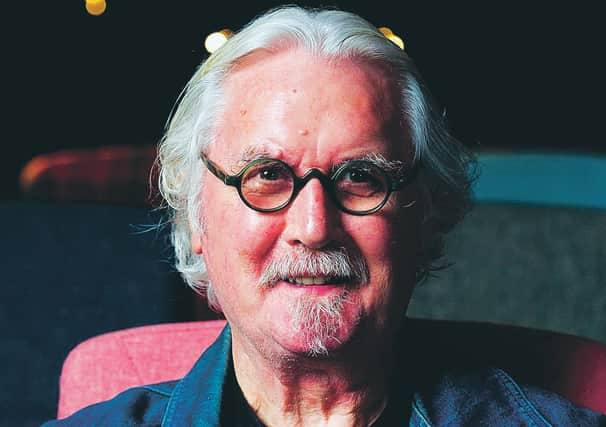Being belted at school was The Big Yin’s big break into life of comedy


Sir Billy Connolly has revealed how being brutally beaten at school by his teachers set him on the way to become an entertainer for the rest of his life.
The Glaswegian star said he had dealt with being regularly belted at primary school in the city by trying to see it as a comical situation.
Advertisement
Hide AdAdvertisement
Hide AdAnd he added that his experiences of school and confrontations between “the big boss and the wee man” had inspired much of his material.
Speaking in a new documentary series, he suggests the regular punishment of schoolchildren was a consequence of the Second World War.
He describes one of his teachers as “psychopathic”, reveals he was being beaten after being wrongly accused by a janitor of carving his initials on a door, and recalls how he had his name removed from the records of his primary school because of the nature of some of his on-stage material.
However, he admitted he had often “exaggerated” stories from his childhood to ensure that people recognised themselves in his routines.
Connolly, who was famously named The Big Yin by his family after he began to outgrow his father, also reveals that he was terrified of being stuck with the nickname “Cuddles” at school in the aftermath of a run-in with a teacher.
Speaking in the first episode of the series, which focuses on his childhood, Connolly admits that there was “plenty of harshness and darkness in it”. But he insists he was “delirious” when he was away from school and allowed the freedom to play with his friends in the courtyard behind the tenement flat where he grew up in the Partick area of Glasgow.
The new documentary series is the centrepiece of a forthcoming BBC Scotland season of programmes and film screenings dedicated to The Big Yin. In the first episode of Billy And Us, which will be broadcast on Thursday, Connolly recalls: “It was post-war. Beating your children up was pretty normal. People were beaten for the slightest things.
Advertisement
Hide AdAdvertisement
Hide Ad“All of it was a comedy to me. I seemed to spend my time standing apart from it and looking at it. It’s easy to deal with it that way. I remember this psychopathic teacher saying to one of the boys: ‘I taught your father and he was an idiot too.’
“I’ve been thinking about it. The attitude of teachers to me and to the class in general must have had the war in mind. They must have been thinking army-wise and all the other things that are to do with war. It wasn’t pleasant the way it is now. My experience of school stayed with me and stays with me to this day. It was traumatic. It lent itself to comedy – the big boss and the wee man.
“The janny dominated the school, especially for me, because I lived opposite and I ran around with his kids. He really did me in, Mr Loftus. He went away every summer on holiday somewhere up the west coast. He came back one year and someone had carved ‘BC’ on a door. He shopped me to the headmaster and said it was me. He had no idea if it was me or not. It wasn’t, but I got belted for it.”
The documentary recalls how Connolly disclosed in 2002 that he had suffered sexual abuse at the hands of his father when he was a child and had only decided to tell his wife Pamela when he was about to pass away. It features some of Connolly’s best-known TV appearances, including his interviews with Michael Parkinson and a famous grilling by Scottish schoolchildren.
In the new interview, Connolly adds: “Good comedians tend to have a dark past. That doesn’t mean you have to have something sinful or weird or criminal about your past.
“My background was the inability to be educated. It made me think differently from everybody else. I’m grateful for it. I don’t think I missed anything.”
Comments
Want to join the conversation? Please or to comment on this article.